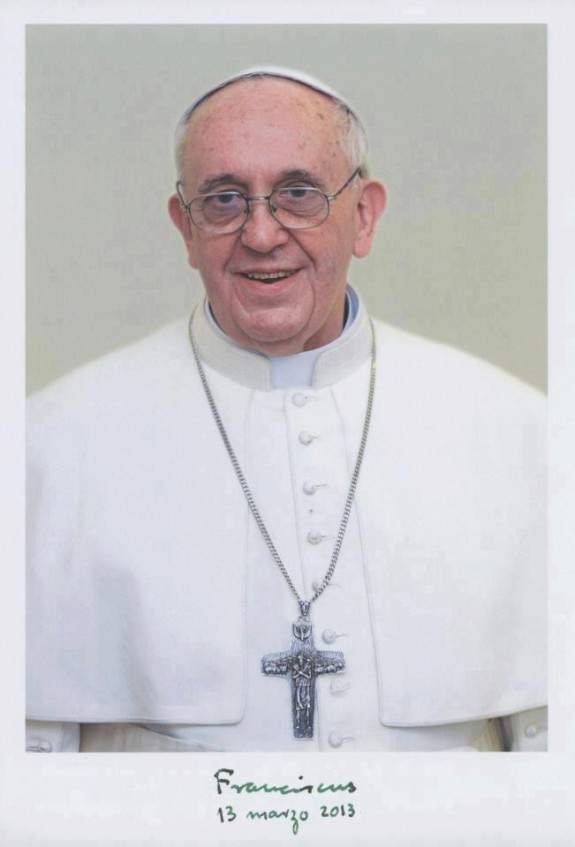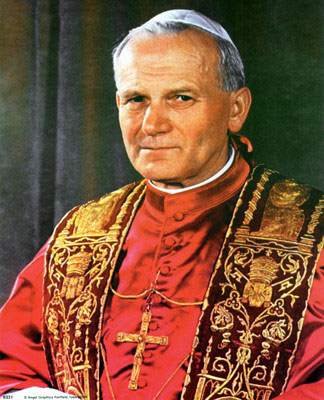I’m on a roll here! Three posts in as many days! In response to this post:
My Protestant friend asks:
So the pope’s word is supposed to be infallible, right? When does it become so? Was his word as a “cardinal” infallible? And since he’s still alive does his word continue to be infallible? If not, how does one go from being fallible to infallible and back to fallible again? Talk about a rollercoaster ride! And also, is Benedict still the most-holy or is he only normal-holy? Or is he even Benedict anymore?
Hi again. I appreciate that you are interested in asking questions and having a respectful dialogue. It doesn’t look like you’ve gotten any adequate answers here. I do hope you will consider me your “Catholic friend” and, I do hope, “brother.” I look forward to your response to my other comments on the authority of the papacy.
I’ll try to reply here in brief, and then we can expand if you wish.
Your question about infallibility again reflects some misunderstandings. I think you are misunderstanding the ways in which the Catholic Church sometimes uses the word holy. For the sake of discussion, let’s define that word. From TheFreeDictionary.com:
ho·ly [ˈhəʊlɪ]
adj. ho·li·er, ho·li·est
1. Belonging to, derived from, or associated with a divine power; sacred.
2. Regarded with or worthy of worship or veneration; revered: a holy book.
3. Living according to a strict or highly moral religious or spiritual system; saintly: a holy person.
4. Specified or set apart for a religious purpose: a holy place.
5. Solemnly undertaken; sacrosanct: a holy pledge.
6. Regarded as deserving special respect or reverence: The pursuit of peace is our holiest quest.
7. Informal Used as an intensive: raised holy hell over the mischief their children did.
When we call the pope the “Holy Father,” that is an aspect of his office — that office is (1) “belonging to, derived from, or associated with a divine power,” the Church, and his office is (4) “specified or set apart for a religious purpose”; that office is (5) “solemnly undertaken,” and because of that office, he is (6) “regarded as deserving special respect or reverence.” The pope, as a man, may or may not be holy as in (3), “living [a holy life],” being “a holy person.” Certainly there have been popes who were not!
To say that God is holy is an entirely different sense of the word. God alone is infinitely holy and (2) “worthy of worship”; He is also, by his nature, (1) “a divine power” and “sacred.” The saints (sancti, holy ones, those set apart), on the other hand, are holy first and foremost because they (3) lived holy lives, and we believe that after their deaths they’ve gone to Heaven and are with Jesus and are thus (1) associated with a divine power. They are (2) deserving of veneration, not akin to worship but more akin to (6), a special respect or reverence.
Now, to your question about infallibility: Again, you are misunderstanding the Church’s claims. Infallibility is an aspect of the office of the papacy, not of the person of the pope. There was nothing “infallible” about Cardinal Joseph Ratzinger before he was pope, or about him now that he is no longer the sitting pope. And this is why I got into that about holiness: you ask how holy he is: well, he’s only as holy as the life he lives. Having read his writings and followed his life for the past eight years, I think he’s a pretty holy guy — but there’s nothing divine about him as a person, and never was. Further, there is nothing infallible about the person of Pope Francis, or the former Cardinal Jorge Bergoglio.
With regard to infallibility: the best way to think about it is not so much about the pope being infallible, but that when he sits in the captain’s chair, it’s really God steering the boat. Literally, that’s pretty much exactly what the Church teaches: by the formal definition of the doctrine, the pope is only said to be infallible when he speaks ex cathedra (“from the chair” of the episcopate) regarding matters of faith and morals (and “the chair” is not a literal chair). Jesus said that the Holy Spirit would guide the Church into all truth (John 16:13), and it’s only as an aspect of that that the pope is ever considered infallible. And his infallibility only “kicks in” when he invokes it; and it is only formally invoked in very limited circumstances. The pope in his day-to-day life isn’t infallible when he declares his favorite pizza or gives his opinion about football (soccer, you know), or even when he writes encyclicals about Church practice or discipline (which are not considered ex cathedra, but, by analogy, written standing up). He is considered to have authority when he writes such, just as a prominent pastor or scholar is considered to have authority when he speaks, by nature of who he is and what he knows. But papal infallibility has only really been invoked a few times in the past couple of centuries. And ex cathedra pronouncements are only ever made in union and agreement with the cardinals and bishops of the Church.
It all boils down to this: Papal infallibility is an assurance that the Holy Spirit, not the pope, is guiding the Church, when push comes to shove. That is not to say that the pope is the Holy Spirit, or always follows the Holy Spirit, or even necessarily lives in accord with the Holy Spirit — certainly there have been popes who have not. But even in the darkest times of the Church, corrupt popes have never promulgated doctrine that is contradictory to the teachings of Christ or the Bible or the Church: they have never declared, say, that the pope is divine, or that Mary is divine, or that Jesus is anything but divine. They have never declared that adultery or theft or murder is okay, or that everybody has to give all their money to the Church. The fact that even the most dastardly people who have held the office of pope, regardless of how they lived their personal lives, have never promulgated such heresy or error should be a confirmation of the truth of this doctrine. Infallibility — the guidance of the Holy Spirit — ensures that the Church will never run off the rails. And the fact that in 2,000 years it hasn’t is a sign of the Church’s Oneness, Holiness, Apostolicity, and Catholicity. You and I disagree about interpretations of Scripture — you may even disagree that the Church has never “run off the rails.” But in the 2,000 years of the recorded history of the Catholic Church, the Church has never promulgated any doctrine in opposition or contradiction to its own doctrines, or contradictory to the truth of Scripture. You would be hard pressed to prove that it has.
As an extension to the doctrine of infallibility: the Magisterium of the Church (Magisterium means “teachership” — the teaching authority of the Church) — that is, the collected body of bishops in communion with the pope, the chief bishop — is considered infallible in its agreement. This means that the ecumenical councils of the Church, from Nicaea to Vatican II, have taught infallible doctrine.
There you have an explanation of the Church’s teachings on infallibility. I will let you chew that up before I continue with the Marian doctrines.



